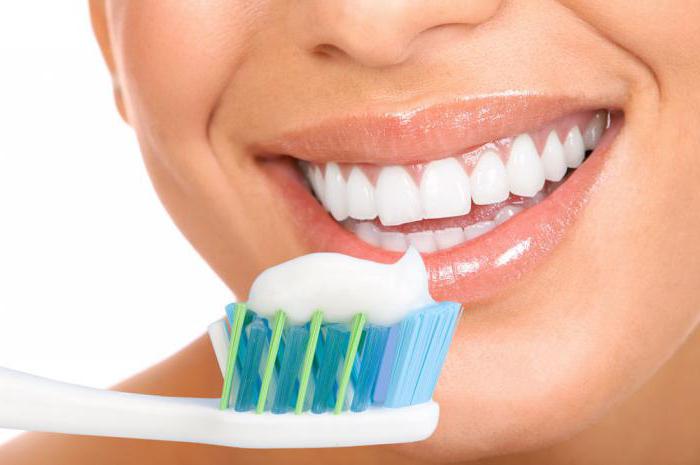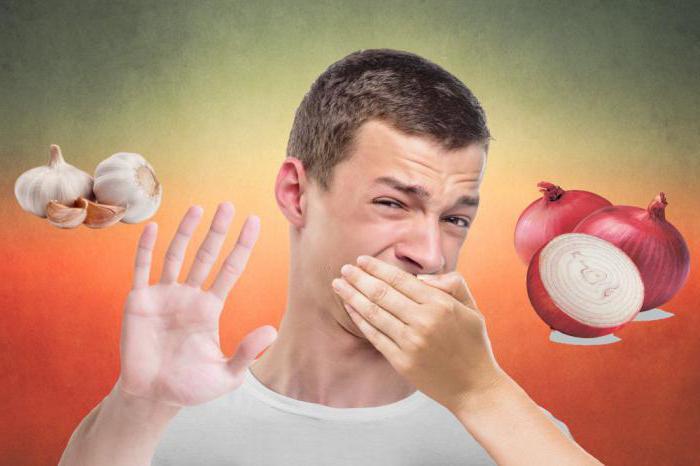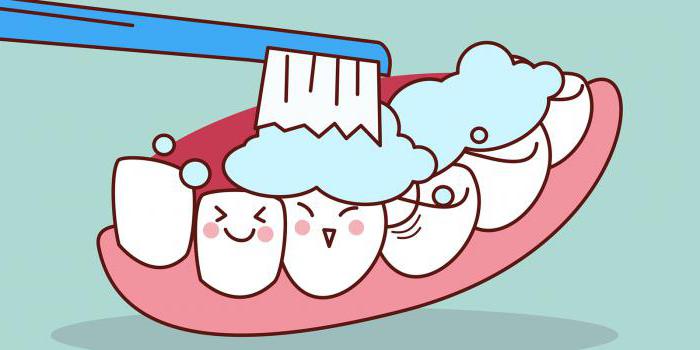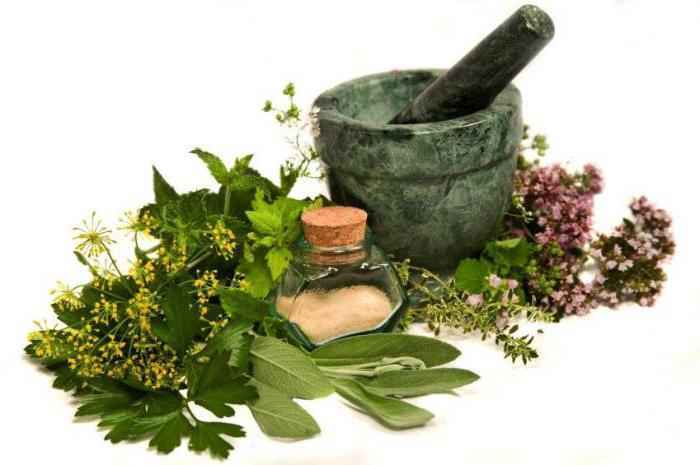Smells very badly from the mouth: what to do, possible causes and methods of treatment
Among all sorts of human shortcomings, imaginary or obvious, stale breath is not striking and imperceptible in photographs, but it not only interferes with communication, but may also indicate serious problems with the body. In some cases, the situation is aggravated so much that we are talking not just about dubious freshness of breath, but we have to admit that it really stinks from the mouth. What to do with this problem, and what to pay attention to first of all?
Halitosis - bad breath
The medical name for this symptom is halitosis. In this case, the smell can be different: sour, sweetish or even putrid. Mild halitosis can appear from time to time even in a healthy person for completely natural reasons. For example, in the morning, soft plaque accumulates on the teeth, gums and tongue, which smells specifically.
There is a common misconception that people began to pay attention to breath odor under the pressure of treacherous dental corporations, and before that, everyone was indifferent to questionable aromas. In fact, even in the last millennium, when singing about loved ones, poets mentioned fresh and fragrant breath as one of the elements of beauty. It is difficult to think about the sublime when the counterpart stinks from the mouth. What to do, and in what order to solve problems? For starters, it’s worth putting aside the panic and understanding the possible causes.

Why does mouth smell
It must be admitted that the human body smells, and not at all of roses. What causes odors? The sense of smell perceives the molecules of various substances in the air, and it depends on the type of these substances how pleasant or unpleasant the aroma you feel. For example, the contents of the intestines smell unpleasant due to hydrogen sulfide, methane, carbon dioxide and some other gases, which are the waste products of bacteria that inhabit different parts of the digestive tract. Microorganisms that are “responsible” for halitosis also live in the oral cavity.
But if your breath really stinks, what should you do? An odor is a symptom that occurs for any of these reasons:
- dental problems;
- diseases of the gastrointestinal tract;
- endocrine disorders (diabetes);
- diseases of ENT organs;
- pulmonological problems (for example, bronchiectasis).
It is more difficult to get rid of halitosis if it manifests itself due to a combination of heterogeneous causes. Dental problems can go in combination with a stomach ulcer or other diseases of the digestive system.

The state of the oral cavity
Dentists claim that they do not even guarantee the absence of bad breath. Many people simply brush their teeth poorly, do not get to the farthest corners, a soft coating remains on the enamel, in which bacteria actively develop. Wisdom teeth and those adjacent to them suffer the most from this.
Over time, soft plaque hardens, transforms into tartar, which presses on the gums, provoking an inflammatory process. Inflammation of the gums inevitably stinks from the mouth. What to do? First of all, you need to remember that the absence of caries is not everything. It is necessary to thoroughly brush your teeth and regularly visit a dental hygienist, to remove tartar.
Any inflammatory process in the oral cavity, diseased gums, problematic teeth - all this for the time being can proceed almost imperceptibly, without critical pain. Halitosis, as the main symptom, is the first to give out the presence of inflammation.

Problems of the gastrointestinal tract
If there is a suspicious smell from the mouth, then the stomach may be the culprit. For example, if you eat garlic and then brush your teeth, you will still smell. Depending on the type of problem, an unpleasant odor can appear on an empty stomach, after certain types of food, only in the evenings or in the middle of the night.
If the problem is in the digestive system, what should I do to avoid bad breath? You need to make an appointment with a gastroenterologist to conduct an examination and clarify the diagnosis. If the smell appears on an empty stomach, then it will be enough to eat something light and neutral - perhaps this is increased acidity.
halitosis as a symptom
By itself, bad breath is not a disease, but an expressive symptom that signals problems in the body. There are cases when it was halitosis that made it possible to make a diagnosis in time and recognize a serious disease before it turned into a serious condition. Difficulties begin due to attempts to quickly cure the symptom in order to get rid of awkwardness when communicating if it stinks very much from the mouth. What to do in such a situation?
The most common causes are, of course, dentistry, followed by the digestive system. Much less often, halitosis appears due to advanced sinusitis, and is possible as a concomitant symptom in diabetes and other diseases.
How to determine if there is a problem?
The most unpleasant feature of halitosis is that the person suffering from this does not always smell and is blissfully unaware of the suffering of those around him. It becomes difficult to communicate with him, especially if the interlocutor prefers to lean too close to the face. It is even more difficult for subordinates if the boss has a strong stink from the mouth. What to do and how to check the freshness of your breath?
The simplest technique is to lick your wrist and sniff the skin after a couple of minutes. You can catch a rather unpleasant smell. As a control test, take a tongue scraping. With a regular teaspoon, swipe over the tongue, preferably closer to the throat. Slightly dried plaque has a characteristic smell, which is what the interlocutor feels during a confidential conversation. A similar test is performed using unscented dental floss - just clean the gaps between the teeth and smell the floss. Finally, you can ask a direct question to a loved one, especially if he does not suffer from excessive delicacy and does not hush up problems.

Oral hygiene
Dental hygienists claim that more than half of their patients have no idea how to brush their teeth. That is why the chain of transformation of soft plaque into tartar begins, caries appears, the gums become inflamed, and the mouth stinks in the morning. What to do with this, we are taught from childhood - you need to brush your teeth twice a day, in the morning and in the evening, while the movements of the brush should not only be left and right. The gaps between the teeth are better cleaned by “sweeping” movements from top to bottom, and the gums are massaged in circles along the way.
Soft plaque is formed not only on the surface of the teeth, but also on the gums, on the tongue, and even on the inner surface of the cheeks. Of course, you should not “scrape” your mouth too vigorously from the inside, as this can injure soft tissues, accidentally infect an infection, and only provoke the development of inflammatory processes. After eating, it is enough to use dental floss and rinse your mouth, it is not necessary to grab a toothbrush.

Ancient folk methods
All sorts of herbs, syrups, lozenges were previously used to freshen the breath. Folk remedies included violet flowers, mint, rosemary, clove oil, anise, cardamom, extracts from berries and fruits. Apothecaries made author's fees, kept the proportions of ingredients secret in order to attract buyers who want to give their breath an exciting aroma. Now it is enough to buy a pack of chewing gum to achieve the same effect. The problem was only the short duration of the fragrance.
Even for a medieval beauty, the question of what to do if your breath constantly stinks did not become some kind of unknown mystery. Sick teeth were treated with varying success by various healers, and inflammatory processes were treated with decoctions and infusions of medicinal herbs. These recipes still work.
You can rinse your mouth for medicinal purposes with infusion of sage, chamomile. If the gums become inflamed and bleed, a decoction of oak bark, pine needles, nettle helps well.

Power correction
If the smell appears after eating or on an empty stomach, then the diet may be the culprit. Diseases of the digestive system also require a special diet, so dietary changes will not only improve the condition of the stomach, but also eliminate unpleasant odors. If after eating the breath stinks very much, what to do with the diet? To begin with, it is worth excluding all foods with extreme tastes: salty, spicy, sour, smoked. It is worth being more careful with raw garlic and onions, the essential oils of these vegetables can aggravate the painful condition, and halitosis becomes a side effect.
You can switch to a healthy and sparing diet even without a doctor's recommendation - you should replace your morning smoked sausage sandwich with a plate of tender oatmeal, and observe how your stomach feels and whether bad breath appears after such a breakfast. A visit to a gastroenterologist and a complete examination will help to make more reasonable adjustments to nutrition.
Halitophobia
Commercial corporations somewhat differently understand the postulate that everything in a person should be perfect, and successfully manipulate the consumer's mind. The natural color of the teeth is not really a shining white, and the breath does not have to be fragrant with a bouquet of alpine herbs with a hint of menthol. The fear of not conforming to the replicated template can turn into a real phobia, it seems to a person that he stinks of rot from his mouth, what should I do? Fear appears, aggravated by panic attacks. A person suffering from halitophobia masks his breathing with all his might, brushes his teeth not only in the morning and evening, but also after eating, and in between meals he continuously consumes chewing gum, aromatic sweets and candies.
Such a bouquet of chemistry sooner or later leads to the fact that instead of an apparent problem, a very real and real one appears. Phobias need to be fought, they do not go away on their own - on the contrary, the condition can worsen, related fears appear. Fresh breath is great, but to avoid bad breath, quite reasonable efforts are enough, without excessive zeal.



